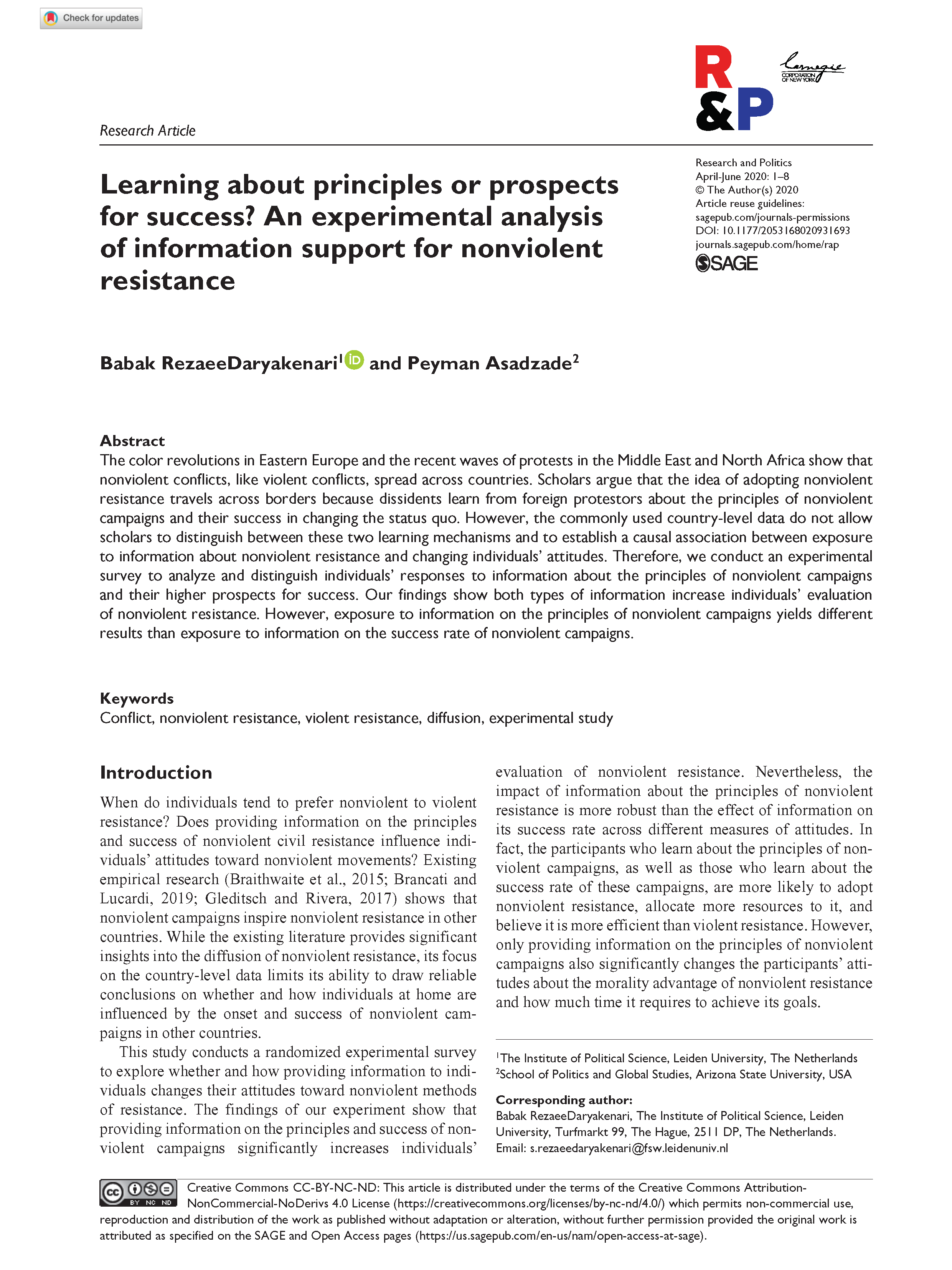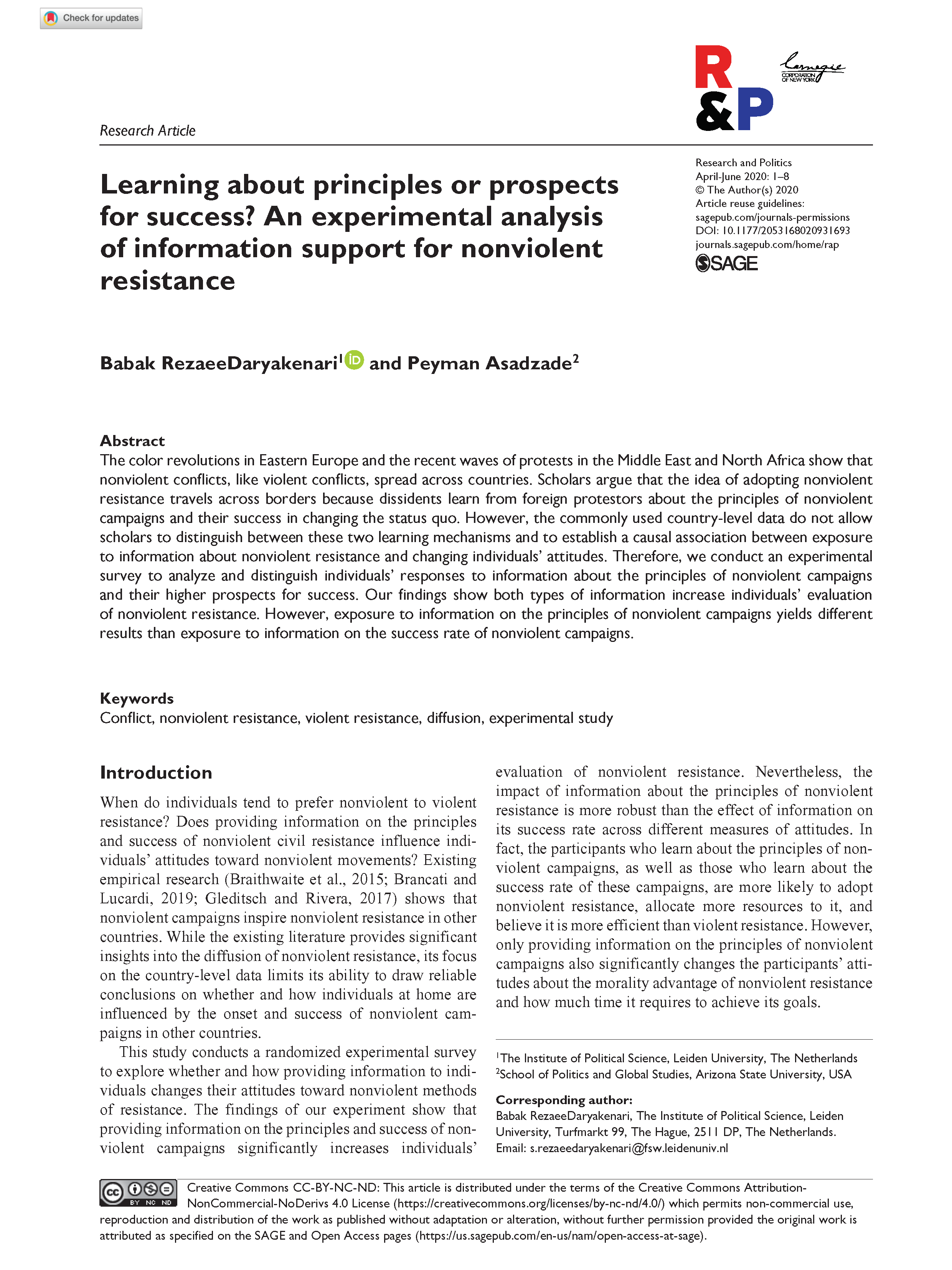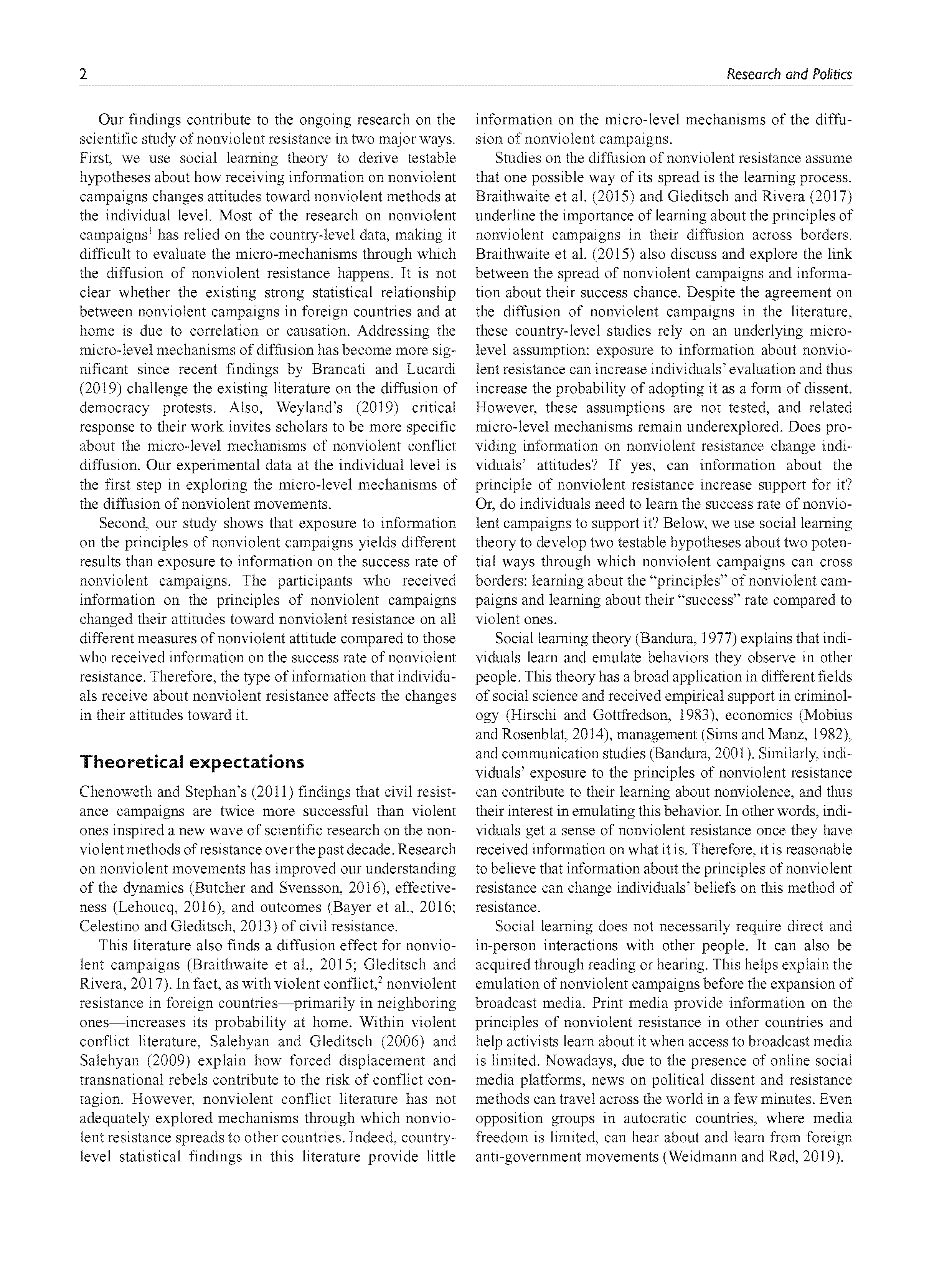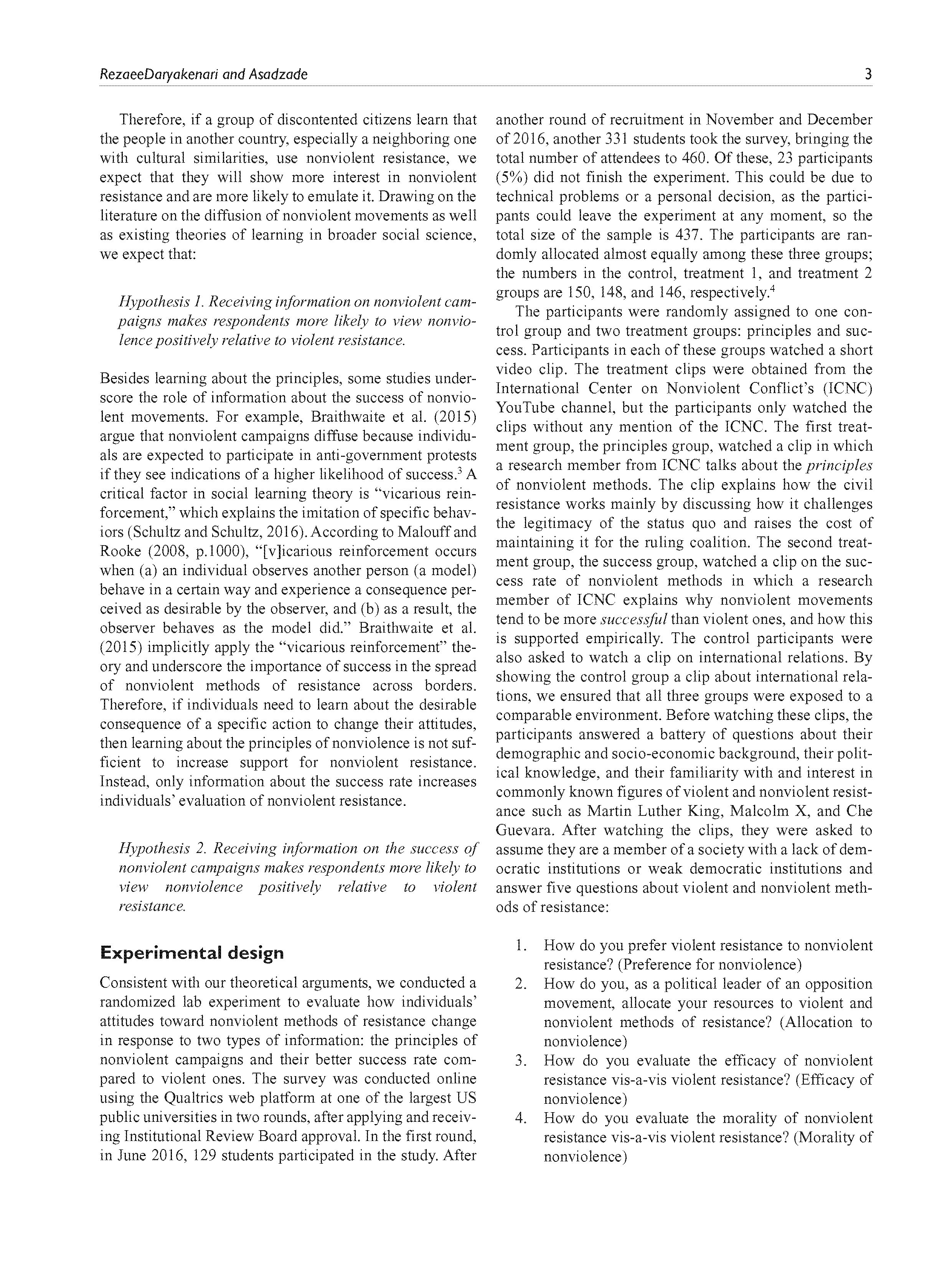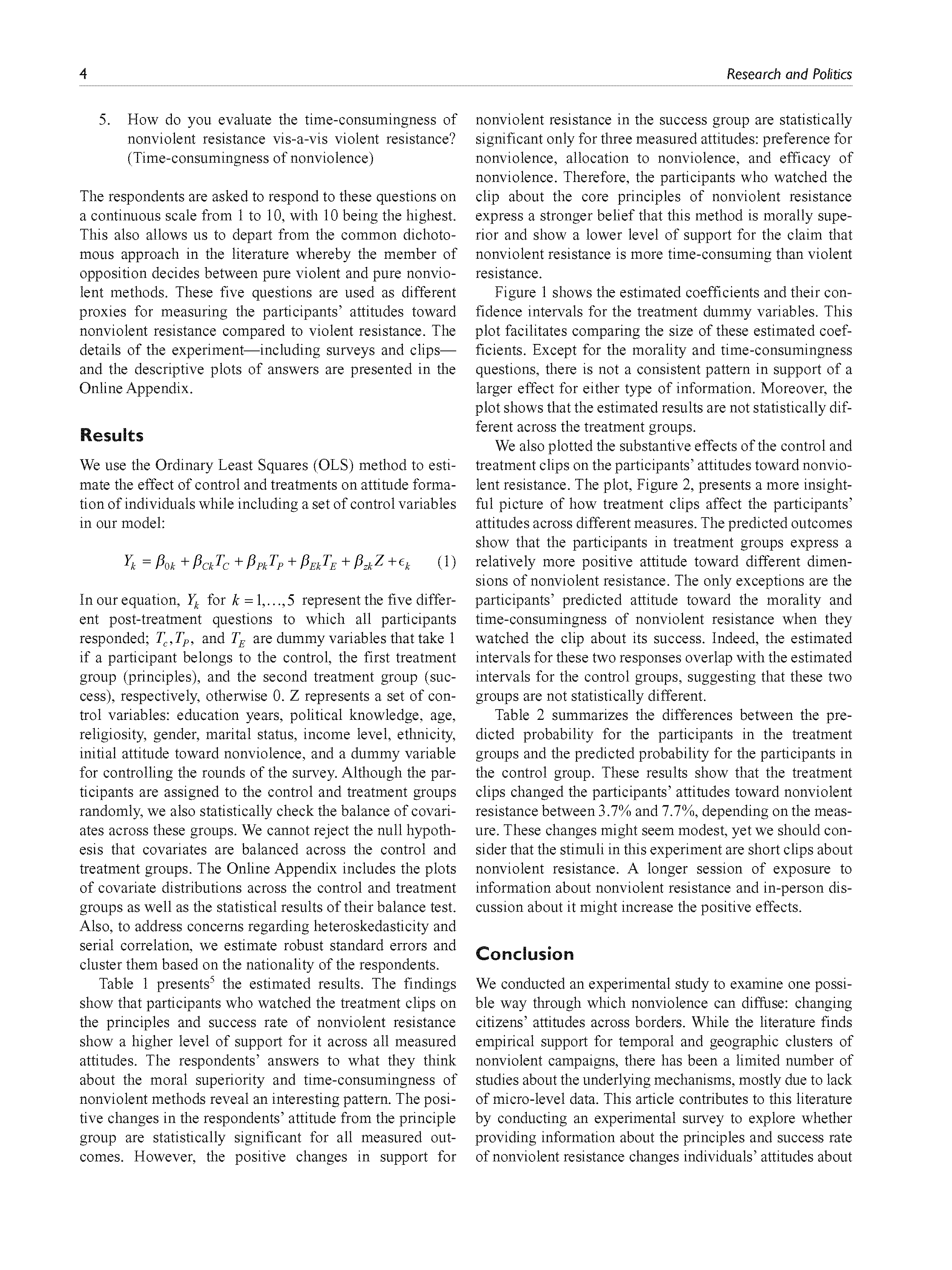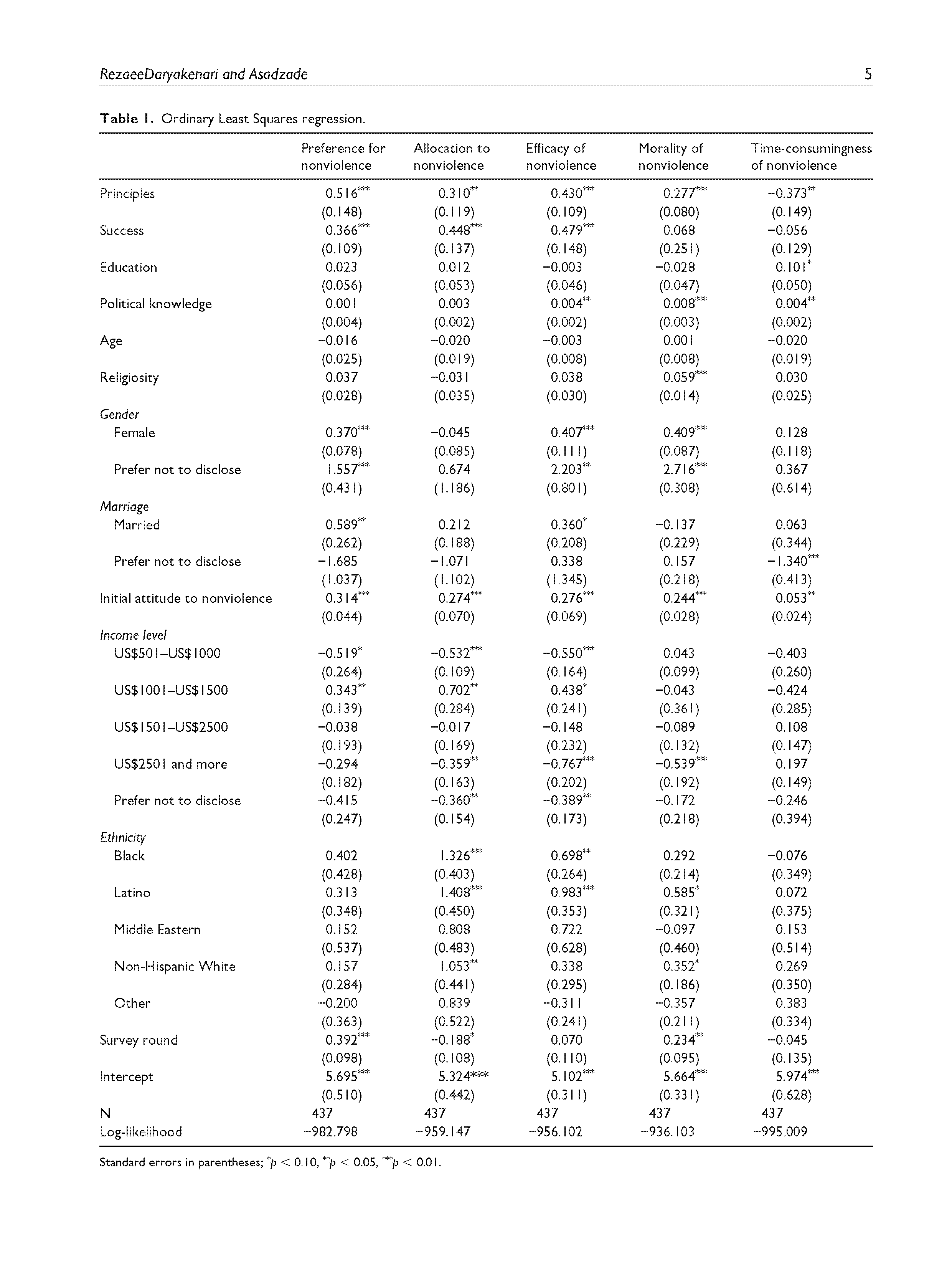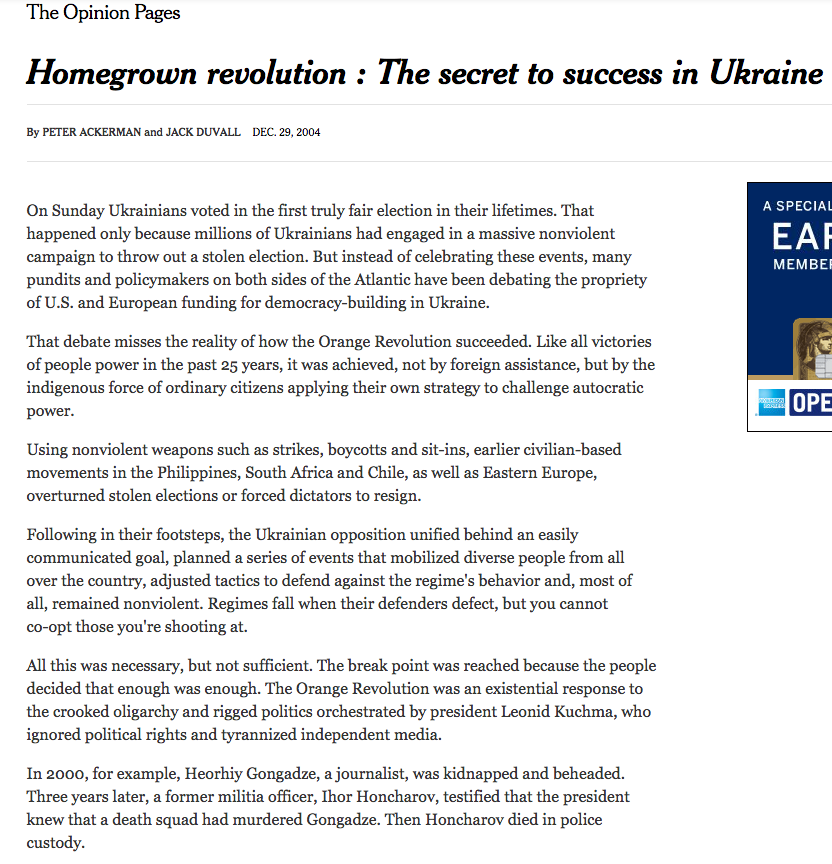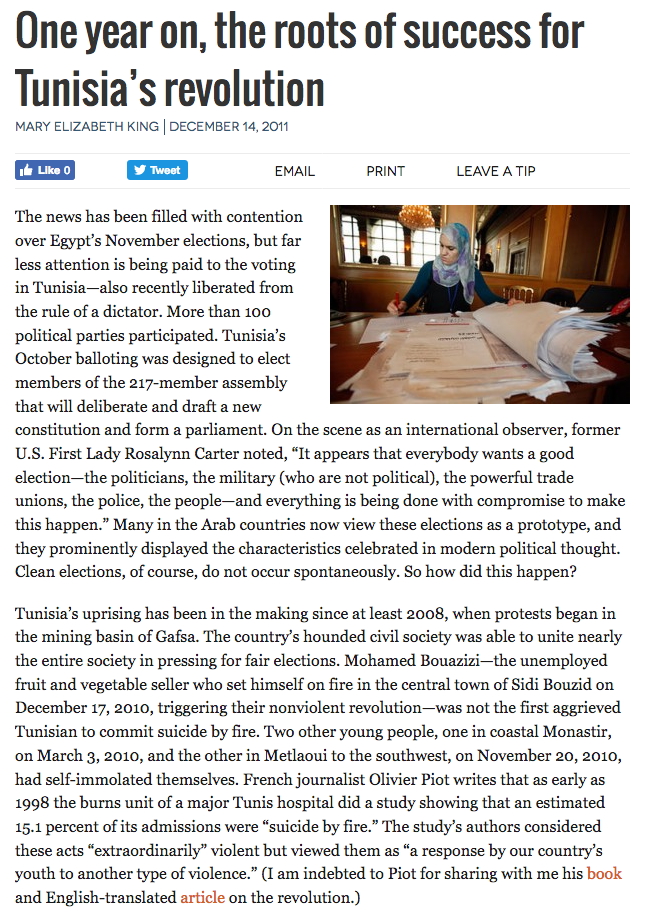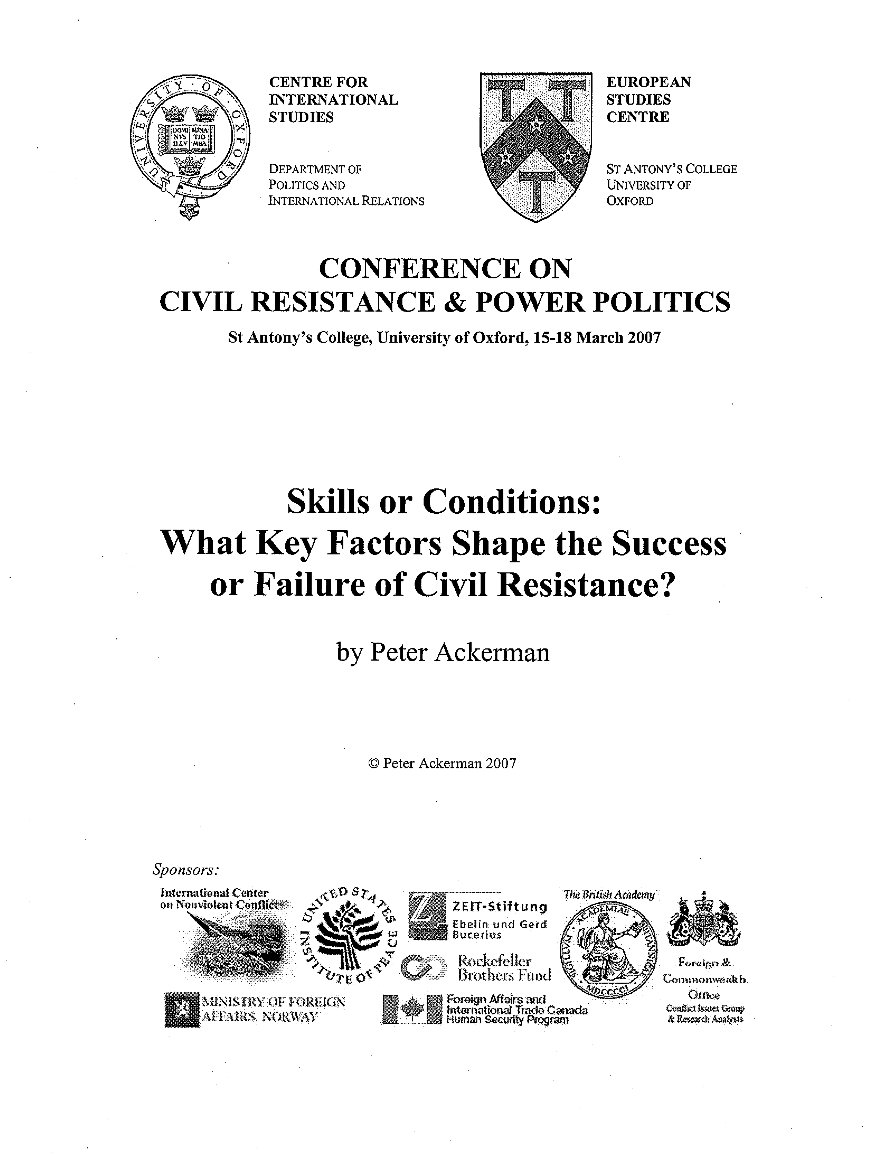Learning about principles or prospects for success? An experimental analysis of information support for nonviolent resistance
The color revolutions in Eastern Europe and the recent waves of protests in the Middle East and North Africa show that nonviolent conflicts, like violent conflicts, spread across countries. Scholars argue that the idea of adopting nonviolent resistance travels across borders because dissidents learn from foreign protestors about the principles of nonviolent campaigns and their success in changing the status quo. However, the commonly used country-level data do not allow scholars to distinguish between these two learning mechanisms and to establish a causal association between exposure to information about nonviolent resistance and changing individuals’ attitudes. Therefore, we conduct an experimental survey to analyze and distinguish individuals’ responses to information about the principles of nonviolent campaigns and their higher prospects for success. Our findings show both types of information increase individuals’ evaluation of nonviolent resistance. However, exposure to information on the principles of nonviolent campaigns yields different results than exposure to information on the success rate of nonviolent campaigns.
Published in Research and Politics April-June 2020: 1–6
